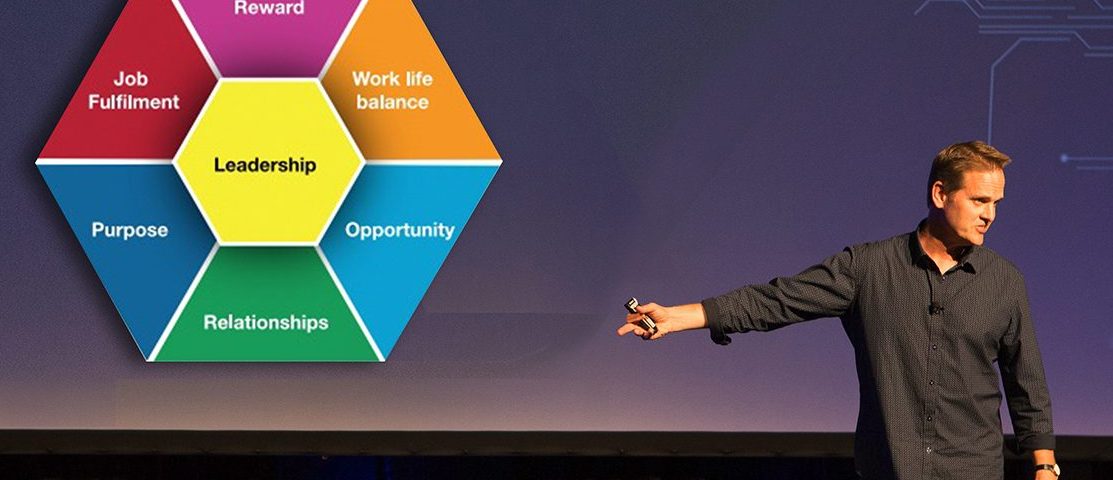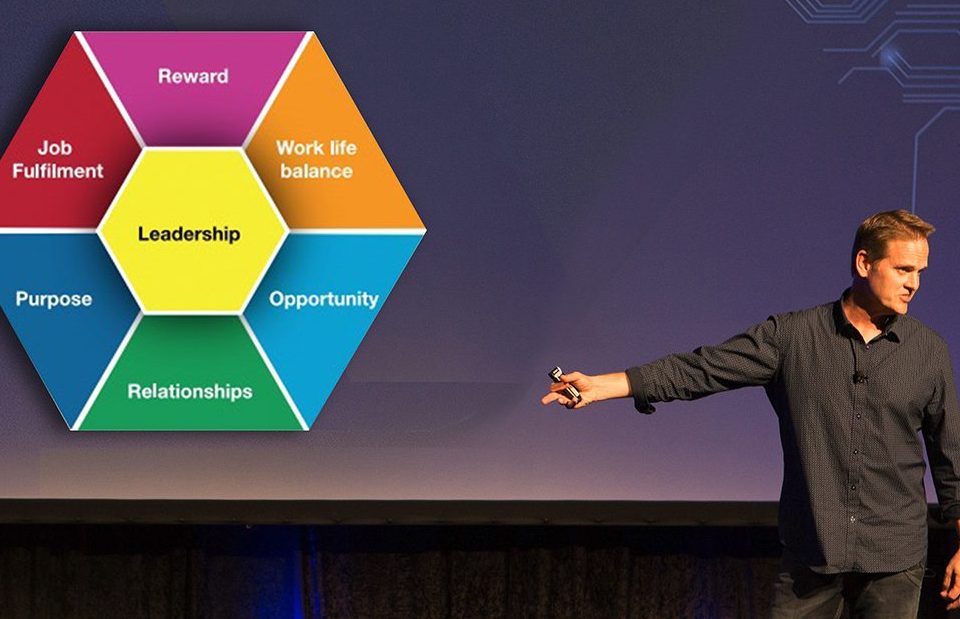30 Questions from a Speaking Coach to Help You Become a Better Public Speaker

30 Questions from a Speaking Coach to Help You Become a Better Public Speaker
To become a better speaker this year, answer for yourself the questions below from Speaking Coach, Ian Hutchinson, Professional Speakers Australia ‘Hall of Fame’ speaker and PSA ‘Educator of the Year’.
Over the last 20 years as a full-time professional speaker and presenter I’ve been to hundreds of conferences and events around the world. So in my other role as a speaking coach I am happy to share some of my experience and insights in the format of a set of key questions that you might like to consider to help you with your speaking and presenting in the year ahead.
Speaking Coach Insights
Sometimes we are too close to our own speaking and can’t see the trees from the forest. As such, we can’t always see our opportunities, strengths and blind spots to reaching our potential. Basically, we don’t know what we don’t know and this is where a speaking coach can be useful.
From my experience as a speaking coach, the majority of speakers and presenters, trainers and industry experts want to be able to:
- Refine their message into something memorable, meaningful and useful
- Influence and engage their audiences with less personal anxiety and greater confidence
- Increase their audience impact with more humour and comedy
- Maximise their untapped authenticity, personality and strengths
- Improve their stories and stage performance skills
- Upskill themselves with techniques and a toolkit of engagement strategies
- Progress their speaking and presenting capabilities
30 Speaking Coach Questions To Ask Yourself:
Knowing Your Audience and Message Match
Question 1. How have you identified your audience’s current challenges and problems that need solving?
Question 2. What three key implementable points/actions will help them solve their challenge? How can you say them now in 30 seconds?
Question 3. What is your one most important message (slogan or catch phrase) for your audience that can be stated in 5 seconds or less?
Engage and Win Over Your Audience Early
Question 4. How well does your first two minutes grab your audience? What do you do?
Question 5. How many types of presentation ‘starts’ do you have for different audiences and situations?
Method Over Message
Question 6. How much time in preparation do you focus on your method vs material?
Question 7. For each presentation, what percentage of it do you try something new?
Find Your Authentic Style
Question 8. How well have you identified your strengths and weaknesses? What do you do about them?
Question 9. How well have you found your voice, your story? How many signature stories do you have?
Preparation Tips that Reduce Anxiety and Stress
Question 10. How happy are you with your planning and preparation before, during and after your presentation?
Question 11. How well do you understand your audience and have techniques to gauge them during your presentation?
Understanding Your Internal Pressures
Question 12. What techniques do you use to manage your nerves and inner critic to your advantage?
Question 13. To what degree do you have specific peak performance techniques or rituals?
Understanding Potential External Break Points
Question 14. How do you manage different rooms, staging, equipment and technology to your advantage?
Question 15. How well do you anticipate and identify possible failure points that could occur during your presentation? And do you have strategies or a ‘presenter’s survival kit’ to deal with them?
Amplify Your Authenticity
Question 16. What styles or techniques have you liked about other speakers that you would like to incorporate more of in your presentations?
Question 17. How courageous are you with allowing vulnerability and openness to shine through in your presenting?
Pre-Starts and Powerful Closes
Question 18. How happy are you with your ‘pre-starts’ and to what degree do you feel you have a commanding speaking introduction?
Question 19. How many different powerful closes and exit strategies do you have? How comfortable are you with them?
Dealing With Unforeseen Situations
Question 20. How well can you distil your content into smaller time units if needed at the last moment?
Question 21. Do you have a bank of strategies for dealing with ‘problem audiences’ or other unexpected distractions?
Thinking On Your Feet
Question 22. To what degree do you feel you have improvisational freedom and the confidence to change suddenly if necessary?
Question 23. How prepared and comfortable are you for the unexpected and thinking on your feet?
The Business of Speaking
Question 24. Do you know how to best ‘pick a lane’ and a target audience for your area of expertise?
Question 25. What are the best sales and marketing approaches? How well do you know how to work with speaking bureaus?
Question 26. How clear are you on the best business systems and leveraging opportunities for future success?
Get Honest Feedback
Question 27. How often do you get feedback to be the best you can be from someone you respect?
Question 28. Do you have a speaking mentor or coach to help polish your presentation skills and be the best you can be?
The Next Most Important Step?
Question 29. Do you have a speaking development plan for further education and skills enhancement?
Question 30. What is the most important next thing you need to do that is going to have the biggest positive impact on your speaking?
Speaking Is A Key Life Skill
Being a confident and dynamic speaker and presenter is a key life skill that can hugely impact your career, no matter what industry you are in. Virtually every top performer has had a coach in their lives at some time or another.
When you discover your message and your unique way of delivering it, anxiety and nerves convert into confidence.
Fast Track Your Speaking
Regardless of what level you are at, having a speaking coach can dramatically fast-track your progress, confidence, impact and even your career.
To be a full-time professional speaker over the last two decades, understandably as most professionals do, I’ve invested hundreds of hours myself with specialised coaches in the quest to constantly improve.
So if you want to get better quickly and be the best you can be at presenting, why not invest in a speaking coach like I did?
Learn how to discover your speaking message, and your authentically unique way of delivering it, so that nerves simply and easily convert into confidence.



